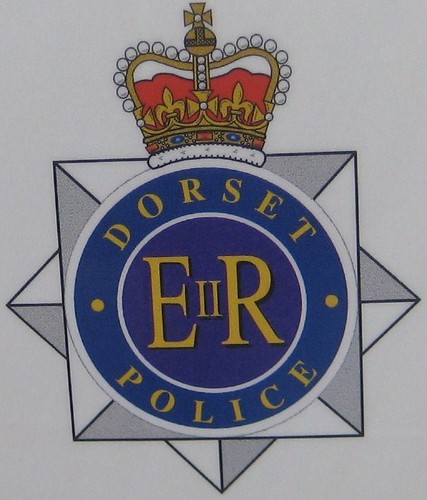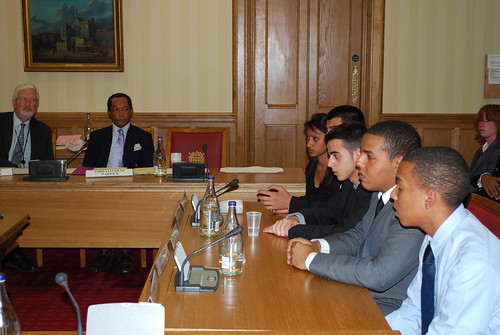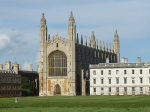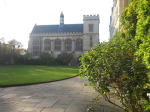
Culture
-
 Homes England pledges £120,000 investment in Northstowe community initiatives
Homes England, the governmental body overseeing housing and urban revitalization efforts, has unveiled plans to allocate £120,000 in grant funding to support community-driven initiativesRead More...
Homes England pledges £120,000 investment in Northstowe community initiatives
Homes England, the governmental body overseeing housing and urban revitalization efforts, has unveiled plans to allocate £120,000 in grant funding to support community-driven initiativesRead More... -
 Fake Monet and Renoir paintings detected on eBay using AI
Up to 40 counterfeit paintings, including alleged works by Monet and Renoir, have been identified for sale on eBay, according to research conducted by Dr. Carina Popovici, an expertRead More...
Fake Monet and Renoir paintings detected on eBay using AI
Up to 40 counterfeit paintings, including alleged works by Monet and Renoir, have been identified for sale on eBay, according to research conducted by Dr. Carina Popovici, an expertRead More... -
 Pippa Middleton and James Matthews unveil lodge at Bucklebury Farm
Pippa Middleton and her billionaire husband James Matthews have inaugurated the lodge at Bucklebury Farm Park in Berkshire, offering a venue for parties, events, and Pilates sessions.Read More...
Pippa Middleton and James Matthews unveil lodge at Bucklebury Farm
Pippa Middleton and her billionaire husband James Matthews have inaugurated the lodge at Bucklebury Farm Park in Berkshire, offering a venue for parties, events, and Pilates sessions.Read More... -
 Five British museums nominated for prestigious arts prize
Museums across Skipton, Dundee, Manchester, and London are vying for the esteemed title of Museum of the Year 2024.Read More...
Five British museums nominated for prestigious arts prize
Museums across Skipton, Dundee, Manchester, and London are vying for the esteemed title of Museum of the Year 2024.Read More... -
 Gustav Klimt portrait sells for £25.7 million at Vienna auction
A long-lost portrait by Gustav Klimt, depicting a young woman, fetched a staggering 30 million euros (£25.7 million) at an auction held in Vienna on Wednesday.Read More...
Gustav Klimt portrait sells for £25.7 million at Vienna auction
A long-lost portrait by Gustav Klimt, depicting a young woman, fetched a staggering 30 million euros (£25.7 million) at an auction held in Vienna on Wednesday.Read More... -
 Rishi Sunak: remembering those lost in terror attack
In his Passover message to the Jewish community, Prime Minister Rishi Sunak acknowledges the somber reality that "for too many families, there will be empty seats" at the Seder table thisRead More...
Rishi Sunak: remembering those lost in terror attack
In his Passover message to the Jewish community, Prime Minister Rishi Sunak acknowledges the somber reality that "for too many families, there will be empty seats" at the Seder table thisRead More... -
 Co-op Live: Manchester's new arena opens with high capacity and ambitions
A monumental addition to Manchester's entertainment landscape, the new £365m Co-op Live arena is poised to claim the title of the largest indoor arena in the UK. Nestled beside ManchesterRead More...
Co-op Live: Manchester's new arena opens with high capacity and ambitions
A monumental addition to Manchester's entertainment landscape, the new £365m Co-op Live arena is poised to claim the title of the largest indoor arena in the UK. Nestled beside ManchesterRead More... -
 Brontë birthplace unveils open day prior to renovation
The birthplace of the renowned Brontë sisters is set to welcome visitors for a special glimpse inside before embarking on a significant refurbishment.Read More...
Brontë birthplace unveils open day prior to renovation
The birthplace of the renowned Brontë sisters is set to welcome visitors for a special glimpse inside before embarking on a significant refurbishment.Read More... -
 Taylor Swift's 'The Tortured Poets Department' smashes Spotify record
Taylor Swift's latest album, "The Tortured Poets Department," has shattered Spotify's record for the most-streamed album in a single day, the platform has announced. Not only did Swift'sRead More...
Taylor Swift's 'The Tortured Poets Department' smashes Spotify record
Taylor Swift's latest album, "The Tortured Poets Department," has shattered Spotify's record for the most-streamed album in a single day, the platform has announced. Not only did Swift'sRead More... -
 Historic London pub, linked to Royalty, ravaged by fire: a heartbreaking loss
A renowned London pub, steeped in history dating back possibly to the 16th century, has suffered extensive damage in a devastating fire. The Burn Bullock, a grade II-listed establishmentRead More...
Historic London pub, linked to Royalty, ravaged by fire: a heartbreaking loss
A renowned London pub, steeped in history dating back possibly to the 16th century, has suffered extensive damage in a devastating fire. The Burn Bullock, a grade II-listed establishmentRead More... -
 Salvator Rosa painting stolen from Oxford, recovered in Romania, and returned to UK
A painting valued at EUR 2 million, stolen from an art gallery at Oxford University approximately four years ago, has been recovered in Romania and returned to UK judicial authorities,Read More...
Salvator Rosa painting stolen from Oxford, recovered in Romania, and returned to UK
A painting valued at EUR 2 million, stolen from an art gallery at Oxford University approximately four years ago, has been recovered in Romania and returned to UK judicial authorities,Read More... -
 Plans to demolish former Museum of London site put on pause
A last-minute intervention from Levelling Up Secretary Michael Gove has halted plans to demolish the former Museum of London site.Read More...
Plans to demolish former Museum of London site put on pause
A last-minute intervention from Levelling Up Secretary Michael Gove has halted plans to demolish the former Museum of London site.Read More... -
 June’s London Fashion Week returns with fresh concept
The British Fashion Council has unveiled an innovative approach for the upcoming London Fashion Week in June, aiming to spark a cultural phenomenon. Set to take place fromRead More...
June’s London Fashion Week returns with fresh concept
The British Fashion Council has unveiled an innovative approach for the upcoming London Fashion Week in June, aiming to spark a cultural phenomenon. Set to take place fromRead More...

British Queen celebrates
Most Read
- Teen held after US woman killed in London stabbings
- Heave-ho Harry! Prince prepares to join the walking wounded in ice trek to North Pole
- Football: Farhad Moshiri adamant Everton deal above board
- "Master of English Style". Interview with Designer Lydia Dart
- Letter to the Financial Times from Lord Mayor Alderman Michael Bear
UK news

Britain is looking to open up a new dialogue on security co-operation with Moscow, four years after breaking off contacts with the Russian security service following the murder of Alexander Litvinenko.
Russian Foreign Minister Sergei Lavrov is in London for talks with David Cameron and Foreign Secretary William Hague as the coalition Government continues its efforts to rebuild relations with the Kremlin.
The killing of Mr Litvinenko, a dissident former KGB officer who was poisoned with radioactive polonium-210 in London in November 2006, has cast a long shadow over relations between the two countries.
The following year the then Labour government broke off all links between Britain and the FSB - the post-Soviet successor to the KGB - after Russia refused to extradite another ex-KGB man, Andrei Lugovoi, wanted by police for the killing.

Photo by Simonrobling
Bus controllers were only told bombs had gone off on Tube trains after a fourth device detonated on a bus, the 7/7 inquest has heard.
There was a gap of nearly an hour between the first wave of three attacks on the London Underground at about 8.50am on July 7, 2005 and the bombing of a number 30 bus in Tavistock Square at 9.47am.
However, it was not until 9.53am that the senior official with the power to halt the capital's bus services was told bombs had been used on the Tube.
The families of some of the 13 passengers killed on the number 30 have questioned why London's entire public transport network was not shut down after the Underground attacks.
But Alan Dell, London's bus network liaison manager, said he would not have stopped the buses even if he had known about the earlier bombings. He told the inquest it was the role of London's buses to help move the 200,000 people evacuated from the Tube network that day.
"All the indications, with hindsight, were that the attacks were taking place on the Underground," he said.
Mr Dell did suspend all buses from running in central London after suicide bomber Hasib Hussain, 18, blew himself up in Tavistock Square.
But he said that takes up to 90 minutes, meaning that even if the order had been issued earlier it may not have stopped the attack.
The Metropolitan Police's control room received a report at 9.10am that a bomb had gone off on a train at Aldgate station but this was not passed on to Mr Dell, the inquest heard. At 9.53am when bus controllers got a call from London Ambulance Service to say a major incident had been declared and bombs had gone off across the capital.
Mr Dell said he thought this was the first time he learned a major incident had been declared. He added: "It's certainly the first time the word 'bomb' was used."
Copyright (c) Press Association Ltd. 2010, All Rights Reserved.

photo by NW54 London
A nursery worker has been arrested following allegations of sexual assault at a childcare centre.
A spokesman for Dorset Police said the employee was arrested on Thursday after detectives received a report of abuse against a child at Starlight Childcare Centre in Winfrith - close to Dorset Police headquarters.
Ofsted has suspended the day nursery's licence pending police inquiries, a spokesman for the education watchdog said.
Police would not say whether the suspect was male or female but confirmed the person was released on bail while investigations continue.
A Dorset Police spokesman said: "It should be emphasised that this investigation is in the preliminary stages and, at this time, no person has been convicted of any offence.
"This investigation will be conducted by the child abuse investigation team.
"The primary concern of Dorset Police and its partner agencies - including social services - is the continued safety of all children who attend this nursery."
An Ofsted spokesman said: "Ofsted is aware of the police investigation and is working closely with police and the Wareham Childcare team. The nursery registration has been temporarily suspended."
Copyright (c) Press Association Ltd. 2010, All Rights Reserved.

photo by quimby
A Muslim cleric has been convicted of raping a young boy as he attended Islamic education lessons at his mosque.
Mohammed Hanif Khan, 42, was also found guilty by a jury at Nottingham Crown Court of sexual activity with a child, as well as the two counts of rape.
The charges relate to two boys who attended the mosque in Capper Street, Stoke on Trent, where he was imam, in 2009.
Prosecutor Tariq Bin Shakoor told the jury part of Khan's job was to lead prayers and give Islamic education lessons to boys at evening classes.
He told the court one of the boys claimed in police interviews that he was singled out by Khan after evening prayer on several occasions. He was sexually assaulted in various areas of the mosque which were not covered by CCTV, Mr Shakoor told the court.
The other boy was assaulted when he was an overnight guest at Khan's house, the jury of six men and six women were told.
But in his evidence to the court Khan, of Owler Lane, Sheffield, said he had a close relationship with the youngsters because he tried to help them with their unruly behaviour, adding that he would often be more lenient on the boys if they were late or did not turn up for classes at the mosque because he was aware they had issues at home.
Khan's lawyer, Robert Woodcock QC, asked him who had invited him to get involved in the family's business and he said it was mainly the mothers of the two boys who asked for his help.
Khan, who told the court he travelled to Syria, Egypt, Pakistan, India and Cyprus to complete his imam training, showed no emotion as the jury delivered its verdicts.
A further five charges were dismissed by Mrs Justice Dobbs because the jury could not reach a decision, and she adjourned the trial for pre-sentence reports to a date yet to be fixed.
Copyright (c) Press Association Ltd. 2010, All Rights Reserved.

Chairman of the Supervisory Board of Finansovyi Soyuz Bank (FSBank) considers that bringing up the issue of the national banking system with the international community is a hasty decision made by the Association of Ukrainian Banks. This was stated by Dmitry Fomenko, Chairman of the FSBank Supervisory Board, at a public meeting in the Brussels
Mr. Fomenko thinks that the bankers’ having submitted a complaint about the draft law #0884 on bringing amendments to banking laws to the European Commissioner for Enlargement and European Neighbourhood Policy speaks for their sense of powerlessness and disbelief to strike a compromise, and that their address is unlikely to solve the problem. “Instead of seeking opportunities to participate in discussion of this law in
“It’s worth mentioning that it’s not a remedy, because some available instrumental techniques and methods allow for creating financial fakes that give a deceptive impression of a real bank capitalization, which may cause directly contrary results. I think, the results will not take long to appear, taking into account the legerity acquired by our leading bankers in recent years. They can also use the artificial augmentation of capital by issuing loans to investors worth the amount of the bank capital. So, a transparent dialogue between government and the banking community is required to reach a real reliability. Besides, a financial situation in
“I have been working in the banking system since 1989, and there's hardly been any problem that were impossible to be solved in
The Ukrainian financier’s speech was positively met by experts at the Brussels
Andy Britten

The future of holiday camp brand Pontin's has been secured after administrators announced its sale in a move which will safeguard the jobs of all 850 staff.
The holiday company, which called in administrators KPMG in November, has been sold to the Britannia Hotel Group, which owns the famous Adelphi hotel in Liverpool.
Alex Langsam, owner of Britannia, said: "The prospects for Pontin's are very exciting. Our plans will take shape without delay as we look towards developing a bright future whilst retaining the best traditions of the past. Pontin's will remain a national treasure, to be enjoyed by generations to come."
All five sites - at Brean Sands in Somerset, Camber Sands in Sussex, Pakefield in Suffolk, Prestatyn Sands in Denbighshire and Southport in Merseyside - have continued to run as normal while KPMG hunted for a buyer.
In November, KPMG said Pontin's had run out of cash because bookings had fallen drastically throughout 2010, which came as a surprise as many UK holiday companies have benefited from more people taking holidays in the UK rather than abroad because of the weak pound.
Rob Croxen, restructuring director at KPMG and joint administrator who led the sale, said: "The business attracted a high level of interest from a broad range of investors such as wealthy individuals, private equity houses, property developers and trade buyers.
"We are really pleased that Britannia, a leisure operator with a proven track record, has clinched the winning bid, ensuring Pontin's lives on as a destination for holidaymakers."
Pontin's was started when Fred Pontin opened the first Pontin's Holiday Park in Brean Sands in 1946, and is best known for its "blue coats" who offer entertainment and help to holidaymakers.
It organises entertainment for its guests featuring acts such as Keith Harris and Orville, Bobby Davro and Chico.
Britannia Hotels was founded in 1976 when the owner bought a 100-bedroom hotel in south Manchester, The Country House Hotel. The private firm now has 36 hotels across the UK, offering 7,000 bedrooms.
Copyright (c) Press Association Ltd. 2010, All Rights Reserved.

Oil majors Royal Dutch Shell and BP will kick off the City's annual results season next week, with the latter due to end its current suspension of dividend payments following the Gulf of Mexico disaster.
Embattled oil giant BP will take another step in its rehabilitation on Tuesday if it delivers on current City expectations and reinstates dividend payments alongside the publication of its full-year results.
The return of BP's dividend following its suspension in the summer due to the Deepwater Horizon disaster would be a key development for pension holders as well as investors given the stock previously accounted for an estimated one in every six pension pounds invested.
Analysts at Collins Stewart anticipate the quarterly dividend will be around seven cents a share, half the level announced in April.
BP upped its estimate of the bill to cover the cost of the oil spill to 40 billion US dollars (£25 billion) in November, but analysts do not expect this to increase and have latched on to recent signs that only half of the 20 billion US dollar (£12.6 billion) compensation fund will be required.
The financial hit from the oil spill will offset underlying replacement cost profits of 21 billion US dollars (£13.2 billion) for the full year. Fourth quarter profits of around 5 billion US dollars (£3.1 billion) would represent a 15% improvement on a year ago but come in 9% lower than the previous quarter.
The company has been able to benefit from a gradual increase in oil prices over 2010, which hit 90 US dollars a barrel at around the year end. Refining margins have also shown improvement.
But production is likely to be 10% lower than a year earlier due to the impact of the US drilling moratorium and asset disposals following the disaster, while extended maintenance periods will also impact output.
FTSE 100 rival Royal Dutch Shell has had a more sedate year and analysts have forecast pre-tax profits of around 30 billion US dollars (£18 billion), including a year-on-year rise in fourth quarter earnings of 69% to 4.68 billion dollars (£2.9 billion).
The company, which reports on Thursday, has benefited from higher oil prices and a hike in production levels, as well as a 3.5 billion US dollar (£2.2 billion) cost-saving plan, which saw 7,000 jobs go.
Copyright (c) Press Association Ltd. 2010, All Rights Reserved.

photo by DECC
Labour leader Ed Miliband has insisted Britain is "united" behind the military campaign in Afghanistan on his first visit to the country.
Addressing troops in volatile Helmand province, Mr Miliband backed the coalition's timetable for combat operations to end by 2015.
"I want you to know that our mission in Afghanistan is not a matter of party politics," he said.
"It is about doing what is right for our country. A more stable Afghanistan will lead to a more safe Britain...
"Above all I want you to know that you have our support, our respect and our admiration for what you are doing for our country."
But he added: "It is right that this is not a war without end."
Mr Miliband toured the force's main base at Camp Bastion on Friday, meeting injured soldiers at the hospital.
Accompanied by shadow defence secretary Jim Murphy and shadow foreign secretary Douglas Alexander, he then travelled to Shawqat, which has seen some of the fiercest fighting recently.
The party has met the American commander of the Nato force, General David Petraeus, and is due to hold talks with President Hamid Karzai in Kabul later.
The visit was subject to a media blackout until now due to security concerns.
Copyright (c) Press Association Ltd. 2010, All Rights Reserved.

photo by UK Parliament
A former Tory peer has been found guilty of fiddling his expenses to claim more than £11,000 from the public purse.
Lord Taylor of Warwick falsely filed for travel and overnight subsistence, a jury at Southwark Crown Court decided by a majority of 11 to one.
The 58-year-old told the House of Lords members' expenses office that his main residence was in Oxford, when he lived in west London.
Taylor, whose first name is John, was the first parliamentarian to be tried and found guilty by a jury over the expenses scandal.

photo by NHS Direct
The number of fraud cases investigated in the NHS has risen by 37% in the last three years amid the economic downturn, official figures have revealed.
Data from the NHS Counter Fraud Service showed the amount of cases of potential fraud detected and probed increased from 351 in 2007/8 to 415 in 2008/9 and 482 in 2009/10.
The value of fraud and unlawful action identified was £4.1m in 2007/8, £16.2 in 2008/9 and £10.9 in 2009/10.




















